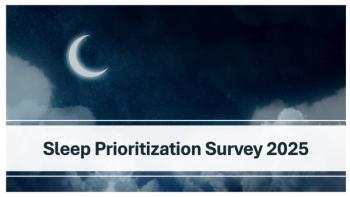
Insomnia Adds to the Economic Burden of All Five Comorbid Conditions Studied
Between 9% and 12% of American adults have insomnia, and 85% of them also are diagnosed with comorbid conditions like type 2 diabetes and dementia. While the numerous health consequences of comorbid insomnia have been well-documented, the additional costs for specific disease groups have not been measured in large studies — until now.
Insomnia is associated with significantly increased healthcare costs for adults diagnosed with common comorbid conditions, a new study of national claims data found.
Insomnia used to be considered secondary to so-called “primary” disorders but now is viewed as an independent, co-occurring condition that should be treated separately. Extensive evidence shows that comorbid insomnia can precede, exacerbate and prolong many conditions that are costly on their own, both in financial terms and with respect to adverse outcomes. But few studies have looked at the economic burden of the combined conditions.
First author
The largest difference among the five disease groups in total average monthly costs per person over 12 months was for cancer patients undergoing treatment ($4,864 for those with insomnia vs. $3,302 for controls, an average ratio of 1.5). The smallest was for menopausal patients undergoing hormone replacement therapy ($1,188 vs. $1,029, a ratio of 1.2).
All were considered statistically significant, as were the differences for most types of healthcare costs within the total (outpatient and pharmacy were higher for all comorbid disease groups and emergency department for some, but not inpatient).
Healthcare resource utilization also was higher with all the comorbid conditions compared with controls without sleep disorders for some of those types of service
The “consistency of our findings across medical disease states highlights the importance of not only recognizing comorbid insomnia but also seeking cost-effective treatments to improve clinical outcomes and population health,” wrote Wickwire and his colleagues.
The cost-effective treatment reference is related to other findings of the same study that healthcare costs for four of the five disease groups studied (not Alzheimer’s and related dementias) were higher for comorbid patients whose insomnia was being treated vs. those who were untreated by ratios ranging from 1.3 for type 2 diabetes to 1.5 for cancer.
Physician-determined insomnia was considered treated based on the most common therapies: prescription fills for zolpidem, low-dose trazadone, and benzodiazepines (as a class). Neither newer medications nor the highly effective but less-used cognitive-behavioral therapy tailored for insomnia (CBTI) were included.
“It is necessary to examinethe economic impact of CBTI and other evidence-based approaches, including newer insomnia medications with different mechanisms of action such as dual orexin receptor antagonists, as these treatments might have a more favorable risk-benefit profile,” concluded the paper.
The authors are affiliated with the University of Maryland and two private companies: Genesis Research, a healthcare and data consultancy that conducted the statistical analysis for the study; and Japanese drugmaker Eisai Inc., which markets the insomnia medication Dayvigo (lamborexant) and, with U.S.-based Biogen, won FDA approval last week for the Alzheimer’s drug Leqembi (lecanemab). Wickwire served as a paid scientific consultant to Eisai, which funded the study.
Newsletter
Get the latest industry news, event updates, and more from Managed healthcare Executive.

























